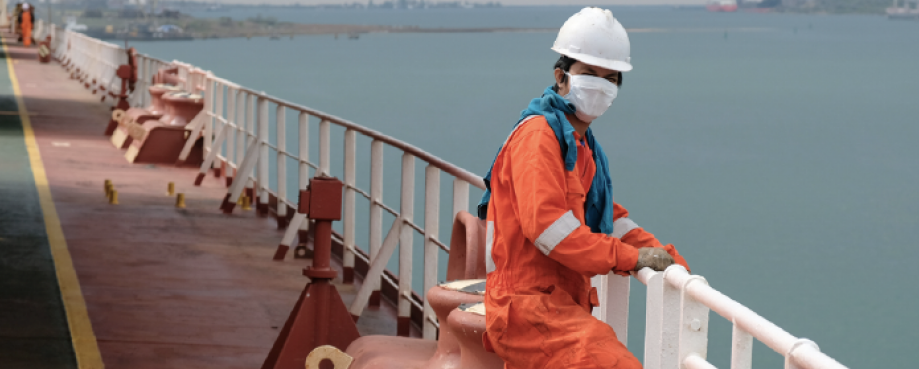
As a result of the call to action by the International Transport Workers Federation (ITF) on the Seafarers crises in June 2020, they in conjunction with Office of the United Nations High Commissioner for Human Rights (OHCHR), United Nations Global Compact (UNGC) and the International Labour Organisation (ILO) have developed guidance and a checklist on how to identify and address this human and economic crises through the due diligence process.
The toolkit is now available for download and helps cargo owners and charterers ask the right questions of suppliers and business partners in their supply chains to ensure seafarers’ human and labour rights are being upheld, including to crew change, freedom of movement and freedom from forced labour.
For far too long, shipping has been a human rights blind spot for global brands
Stephen Cotton, ITF General Secretary
We fully support this toolkit and are proud that ETI members are part of this ground-breaking work says, Peter McAllister, Ethical Trading Initiative Executive Director. Furthermore, he said: “Seafarers were initially one of the invisible victims of COVID-19, which shone a light on exploitative practices in the shipping industry. We are therefore very pleased to see the Seafarers Checklist that has been developed in rapid time in consultation with the International Transport Workers Federation and the International Chamber of Shipping to help address this situation. We urge business to use this tool to help improve the working conditions for seafarers and underpin a more sustainable shipping industry”
ETI members rose to the challenge
Our initial member event laid out the humanitarian crises and how to open dialogue with logistic providers to apply the Maritime Protocols and urge Governments to open borders so that crew changes could take place. Members rose to the challenge of working out a way to apply established Human Rights Due Diligence processes to this hidden, yet critical part of the supply chain employing.
In June 2020, members responded to the ETI statement on the International Maritime Organisation (IMO) protocols for treatment of seafarers during the COVID-19 pandemic and, with the International Transport Workers Federation, we have established an Expert Support Network for members committing to apply their HRDD processes in the logistics industry.
Human Rights blind spot
Responding to the launch of the toolkit, ITF General Secretary Stephen Cotton says, “For far too long, shipping has been a human rights blind spot for global brands. Responsible companies in today’s world want to understand how they or partners in their supply chains might be violating human rights. That’s why in the midst of the crew change crisis, the launch of this tool couldn’t be more timely,”
Implementation - time to act
The Expert Support Network of Companies, Trade Unions and NGOs now aim to work with the ITF to implement the toolkit and guidance.
